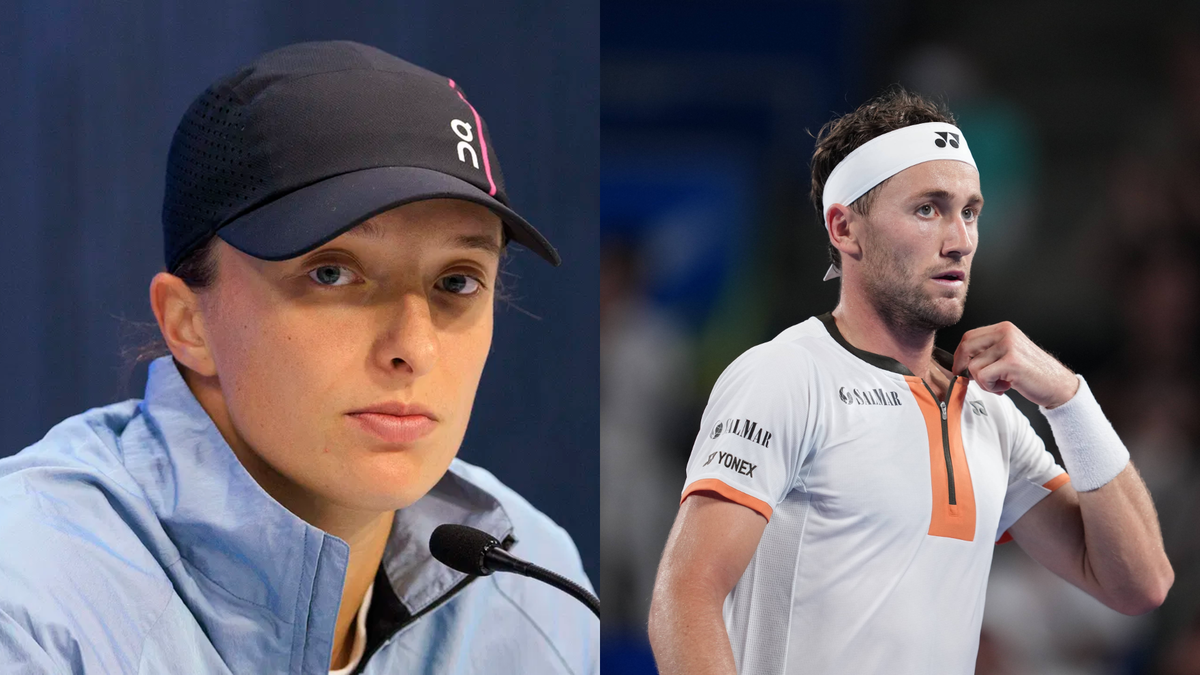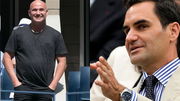
Imago
Image credit: imago

Imago
Image credit: imago
Social media has opened the gates for fans to reach tennis stars like never before, but behind that access lurks a storm of venom. After tough losses, especially when betting stakes run high, players are bombarded with vitriol. Daria Kasatkina admits the abuse never stops, while Diego Schwartzman exposes threats that cut deep. Even icons like Coco Gauff, Iga Świątek, and Taylor Fritz aren’t spared from this digital darkness. And now, as the Stockholm Open lights up, Casper Ruud steps forward, calling hateful social media messages a common thing: a brutal truth echoing across the sport.
Watch What’s Trending Now!
On Wednesday, Ruud stumbled early but roared back with precision and purpose. After a shaky start against Marin Čilić, the Norwegian shifted gears, crafting a 7-6(2), 6-4 win to open his BNP Paribas Nordic Open campaign. Down 1-4 in the opening set, he recalibrated, found his groove, and pushed his season’s record in opening rounds to an impressive 14-3. But beneath that composed surface, another storm brewed, one not on the court, but online.
Ruud, calm as ever in demeanor, chose this victory stage to peel back the curtain on the game’s darker side, the venomous noise of social media. “Unfortunately, it has become a common thing for athletes due to bettors who have no filter and no shame about what they are writing,” Ruud confessed at the post-match press conference.
ADVERTISEMENT
🎙️🇳🇴 Casper Ruud at the Stockholm Open:
👉 On players getting hateful messages on social media:
“Unfortunately, it has become a common thing for athletes due to bettors who have no filter and no shame about what they are writing. It’s the dark side of that world. I try not to… pic.twitter.com/1RjwILx4mH
— Tennis Masterr (@tennismasterr) October 15, 2025
He didn’t stop there. “It’s the dark side of that world. I try not to read it and not get affected by it. I like to think that they’re overreacting and throwing out crazy stuff because they’re angry that we didn’t do well for their bets. It’s just sad overall,” he added, his tone heavy with truth. In a sport built on poise and respect, this toxic undercurrent feels like an uninvited guest, persistent, loud, and cruel.
And he’s far from alone. Jessica Pegula, known for her composure and grit, faced her own wave of vitriol after a shocking French Open exit this year. Her defeat to the French underdog Lois Boisson sparked outrage not from critics, but from bettors blinded by loss. The world No. 5 stood tall, responding with courage.
ADVERTISEMENT
“These betters are insane and delusional, and I don’t allow DMs and try to remember when to shut my comments off during tournament weeks, but they always find a way to my timeline,” she said. Her frustration poured out in raw honesty. “This stuff has never really bothered me much but does any other sport deal with this to our level? I’d love to know because it seems to be predominantly tennis? It’s so disturbing.”
Even Iga Świątek, the world’s calm queen of clay, has admitted to feeling the strain. She explained last year why she keeps her distance from social media, saying, “I would say I’m doing good job, like, separating that. I don’t use really social media during the tournaments. I just post my stuff and that’s all.”
ADVERTISEMENT
And if you think the list ends there, think again. This is no isolated tale; it’s an epidemic. From rising stars to veterans, the avalanche of abuse from bettors and trolls grows by the day. The courts may be silent between points, but the echoes of online hatred are deafening.
Sloane Stephens speaks out against online hate
In 2021, Sloane Stephens faced one of the ugliest sides of modern tennis fandom. After her exit from the US Open at the hands of Germany’s Angelique Kerber, the American star revealed that she had received “2,000-plus messages of abuse/anger” from furious fans who couldn’t accept her defeat.
ADVERTISEMENT
The outpouring of hate was shocking, even for someone as composed as Stephens. She bravely shared a few of those vile messages on her Instagram story, writing, “I am human. It’s so hard to read messages like these. This type of hate is so exhausting and never-ending.” Her words resonated across the tennis world, revealing a hidden pain behind the athlete’s calm façade.
Years later, Stephens once again opened up about her emotional battles with online hatred. Appearing on the ‘She’s So Lucky’ podcast with Les Alfred on April 15, 2025, she offered a raw and unfiltered look into the pressure that shadows her life. Stephens recalled how fan reactions sometimes even robbed her of personal moments. “I had so many crazy messages after the match that I was like ‘Oh we shouldn’t do a birthday post cuz it’s going to be like all the comments are just going to be like crazy betters or whatever,’” she said.
Top Stories
Andre Agassi Left in Disbelief Over Roger Federer’s Shot Choice During Australian Open Showdown: “Stop With This”

Novak Djokovic Addresses Retirement Plans, PTPA Divide and a Worrying Australian Open Build-Up

Madison Keys Shares Cheeky Marriage Confession After Husband’s ‘Thrown Out’ Warning at Australian Open

Ex-Australian Open Champ Has Andre Agassi’s Back After Roger Federer Dominates Fun Showdown

Emma Raducanu Breaks Silence Over Scheduling Concerns With a Bold Take: “It’s Easy to Complain”

But Stephens is not alone in this battle. Young American Alex Michelsen, just 19, experienced his own share of digital cruelty after his debut at Wimbledon 2024. Following a first-round loss in his maiden main draw appearance, fans flooded his social media with venom. Some cruelly told him to “pack his bag,” while others demanded that he “quit tennis.” For a teenager chasing dreams on one of sport’s biggest stages, the hostility cut deep.
ADVERTISEMENT
Then came Gaël Monfils, the French showman loved for his flair and spirit, who faced the bitter sting of online hate. After his R32 loss to 20-year-old American Alex Michelsen at the Stuttgart Open, the trolls came for him as well. But Monfils met the hate with humor and brutal candor.
“Hey guys, it’s not financial advice, but really, you’re still betting on me? First tournament on grass, I play Alex Michelsen, 20 years old, 35 in a word, and you wanna bet on me? You are writing that I’m sh–. I know I’m sh–. We both know I’m sh– and you still bet on me? Who is the dumbest between you and me, to be honest? No, come on.” His words cut through the noise with wit, exposing the absurdity behind the anger.
As these incidents pile up, it’s clear that the problem is spiraling out of control. The screens may hide faces, but the words pierce deep.
ADVERTISEMENT
It’s about time this outburst of online hatred takes center stage, and unless players speak louder, the cruelty will keep echoing in the spaces where sport should only celebrate passion, not poison.
ADVERTISEMENT
ADVERTISEMENT
ADVERTISEMENT

